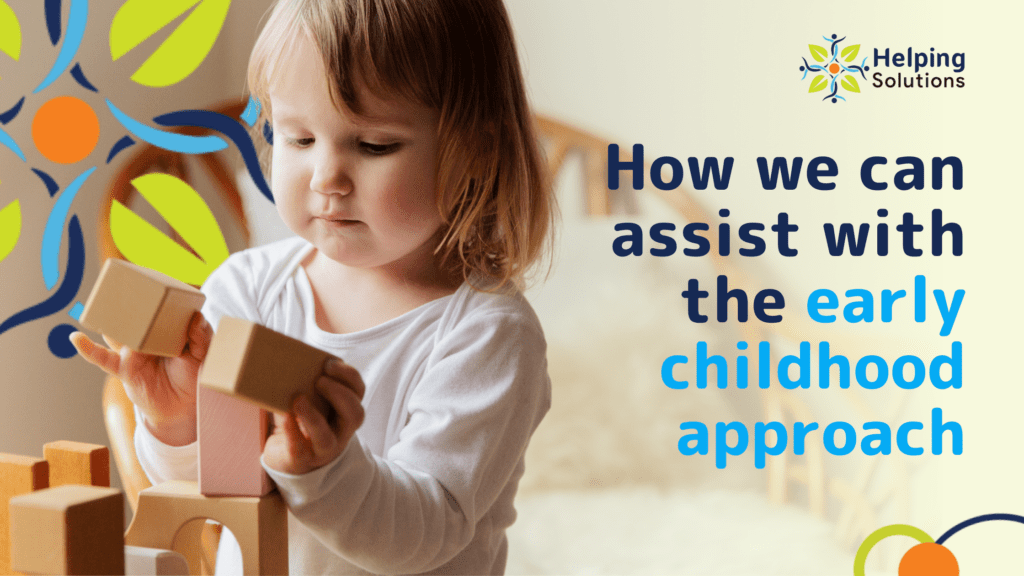If you have children who are experiencing developmental delays, or have been recently diagnosed with a disability, you may be eligible for the early childhood approach through the NDIS (which focuses on early intervention strategies).
What is early intervention?
Early intervention aims to provide supports and services as early as possible in a child’s life to reduce impacts of their condition and improve long-term outcomes. Most of these supports tend to be therapy based, though exceptions to this can apply depending on your child’s condition and needs.
The early years of life are incredibly important and lay the foundations for how an individual will learn and develop later in life. This is why early intervention can be the difference in a child needing supports later in their adult life and being able to live more independently.
Early intervention strategies focus on:
- Developing skills and independence
- Improving quality of life
- Assisting families and carers to support the child’s needs (beyond that of normal care duties for a parent).
Who is the early childhood approach for?
The early childhood approach is for children under 9 who may be living with a disability, or experiencing developmental delays, and are eligible for an NDIS plan.
The early childhood approach helps children:
- younger than 6 with developmental delay, or,
- younger than 9 with a High Care needs disability (along with their families to access the right support when they need it).
Many families use the early childhood approach to support their children in building capacity, increasing their inclusion in the community, and developing their ability to participate in everyday activities and tasks.
How can Helping Solutions can assist with the early childhood approach?
Would your child like to socialise with peers with less barriers, attend school with more comfort and confidence, or even engage in activities they’re excited to try?
At Helping Solutions, we don’t specialise in therapy-based supports because our area of expertise is in nursing care, purpose-build accommodations, Assistance with Daily Living and Community Participation.
That being said, there are some cases where you may still be eligible to receive supports that we can assist with. Our core supports (including Daily Living and Community Participation) can support select families through the early childhood approach. Some areas our supports can assist with include:
Personal care
Does your child have High Care needs and require support with personal care tasks?
With our Daily Living supports, our Support Workers can be part of your morning or evening routine and provide support tailored towards your child’s regular care needs, enabling you to:
- Maintain your employment
- Get enough sleep
- Spend enough time with every family member
- Prioritise your own self-care
Daily Living supports include:
- Complex hygiene assistance
- Mobility assistance
- Bowel care and bladder management
Community Participation
We can help your child build skills through participation in community activities and local groups, supporting them to progress towards their development milestones. This is through supported outings that also build your child’s capacity through:
- Social skills development
- Creative workshops
- Peer support groups
Nursing and medication support
Our nurses can assist in supporting your child’s health, so that they can show up at their fullest capacity.
Nursing Supports include:
- Catheter and stoma care
- Complex wound care
- PEG feeding and tube procedural care
- Ventilation management and tracheostomy care
- Health monitoring and seizure management
- Medication management and administration
Ready to build the right support system for your family?
Get in touch with our friendly team today to learn more about how we can build a custom and personalised care plan for your family.
